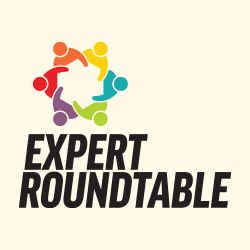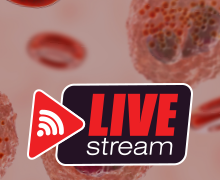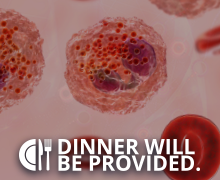Monday, October 22, 2018
6:30 PM – 9:00 PM
Chicago, IL
Hyatt Regency McCormick Place
Regency AB Ballroom (2nd Floor)
Chicago, Illinois
Richard A. Furie, MD
Chief, Division of Rheumatology, Northwell Health
Professor of Medicine, Donald and Barbara Zucker School of Medicine
Hofstra University
Hempstead, New York
Eric Morand, MBBS (Hons), FRACP, PhD
Head, School of Clinical Sciences, Monash University
Director, Rheumatology, Monash Health
Melbourne, Australia
Virginia Pascual, MD
Ronay Menschel Professor of Pediatrics
Director, Gale and Ira Drukier Institute for Children’s Health
Weill Cornell Medicine
New York, New York

This activity is jointly provided by Global Education Group and Integritas Communications.
This activity is supported by an educational grant from AstraZeneca.
This is not an official program of the American College of Rheumatology.
Dinner will be provided.
Target Audience
The educational design of this activity addresses the needs of rheumatologists and other clinicians who treat patients with moderate-to-severe systemic lupus erythematosus (SLE).
Statement of Need/Program Overview
SLE is a chronic, autoimmune disorder that can present with a variety of clinical manifestations, commonly including arthritis, fever, photosensitivity, and malar rash.1,2 The disease is pathologically characterized by generalized, multisystem inflammation and the presence of a number of potential autoantibodies and immune complexes.2,3 Scientific and clinical research on SLE has uncovered factors that contribute to the characteristic loss of immune self-tolerance and the development of organ dysfunction.3,4 A better understanding of SLE pathogenesis has supported the development of new approaches to disease characterization and targeted therapies.5,6 Since approval by the US Food and Drug Administration of the first biologic therapy for SLE several years ago, promising new therapeutic options with novel targets are in clinical development.5-7 Rheumatologists can benefit from updates on the latest clinical trial data and practical recommendations on how the growing evidence pool can be translated into future clinical decision making. During this Interactive Exchange™ program, an internationally recognized panel of expert faculty will discuss the latest updates in SLE pathogenesis, clinical data supporting evolving therapeutic approaches, and new insights into measurement of biomarkers, disease activity, and patient outcomes.
References
- Bertsias GK, et al. Diagnostic criteria for systemic lupus erythematosus: has the time come? Nat Rev Rheumatol. 2013;9(11):687-694.
- Tsokos GC. Systemic lupus erythematosus. N Engl J Med. 2011;365(22):2110-2121.
- Yaniv G, et al. A volcanic explosion of autoantibodies in systemic lupus erythematosus: a diversity of 180 different antibodies found in SLE patients. Autoimmun Rev. 2015;14(1):75-79.
- Obermoser G, Pascual V. The interferon-alpha signature of systemic lupus erythematosus. Lupus. 2010;19(9):1012-1019.
- Furie R, et al. A phase III, randomized, placebo-controlled study of belimumab, a monoclonal antibody that inhibits B lymphocyte stimulator, in patients with systemic lupus erythematosus. Arthritis Rheum. 2011;63(12):3918-3930.
- Felten R, et al. The 2018 pipeline of targeted therapies under clinical development for Systemic Lupus Erythematosus: a systematic review of trials. Autoimmun Rev. 2018;17(8):781-790.
- Furie R, et al. Anifrolumab, an Anti-Interferon-α Receptor Monoclonal Antibody, in Moderate-to-Severe Systemic Lupus Erythematosus. Arthritis Rheumatol. 2017;69(2):376-386.
Educational Objectives
Upon completion of this activity, participants will be better able to do the following:
- Discuss dysregulated innate and acquired immune processes associated with SLE development and progression, focusing on factors that are promising biomarkers or molecular/cellular treatment targets
- Describe recent results from clinical trials evaluating patients with moderate-to-severe SLE and current or emerging targeted therapies designed to inhibit innate or acquired immune signaling factors or cellular populations
- Adapt current clinical choices for SLE management quickly in response to elucidation of new predictive biomarkers as well as clinical trial data and potential prescribing considerations as emerging targeted therapies become available
Physician Accreditation Statement
This activity has been planned and implemented in accordance with the accreditation requirements and policies of the Accreditation Council for Continuing Medical Education (ACCME) through the joint providership of Global Education Group (Global) and Integritas Communications. Global is accredited by the ACCME to provide continuing medical education for physicians.
Physician Credit Designation
Global Education Group designates this live activity for a maximum of 2.0 AMA PRA Category 1 Credits™. Physicians should claim only the credit commensurate with the extent of their participation in the activity.
Americans with Disabilities Act
Event staff will be glad to assist you with any special needs (ie, physical, dietary, etc). Please contact us at info@exchangecme.com
Global Contact Information
For information about the accreditation of this program, please contact Global at 303-395-1782 or cme@globaleducationgroup.com.
Fee Information
There is no fee to attend this symposium; however, seating is limited. Preregistration does not guarantee seating. We recommend arriving at the symposium location early.
Register Now


18
2025
Interleukin-33 and Lower Tract Respiratory Diseases
Moving From Pathophysiology to Management
| Time: | 7:00 PM-8:30 PM PT |
| Venue: | Live Stream |
| Location: | Live Stream |
| Faculty: | Jonathan M. Hand, MD; Professor Dave Singh MD, FERS, FBPhS; Professor Tom Wilkinson MA Cantab MBBS PhD FRCP FERS |


18
2025
Interleukin-33 and Lower Tract Respiratory Diseases
Moving From Pathophysiology to Management
| Time: | 6:30 PM-8:30 PM PT |
| Venue: | Marriott Marquis San Francisco, Yerba Buena 7 (Lower B2 Level) |
| Location: | San Francisco, CA |
| Faculty: | Professor Tom Wilkinson MA Cantab MBBS PhD FRCP FERS; Professor Dave Singh MD, FERS, FBPhS; Jonathan M. Hand, MD |

19
2025
Turning the Tide on Eosinophilic Granulomatosis With Polyangiitis
New Targeted Strategies to Reduce Disease Burdens
| Time: | 7:00 PM-8:30 PM PT |
| Venue: | Live Stream |
| Location: | Live Stream |
| Faculty: | Michael E. Wechsler, MD, MMSc; Praveen Akuthota, MD; Anisha B. Dua, MD, MPH; Jason M. Springer, MD |

19
2025
Turning the Tide on Eosinophilic Granulomatosis With Polyangiitis
New Targeted Strategies to Reduce Disease Burdens
| Time: | 6:30 PM-8:30 PM PT |
| Venue: | Marriott Marquis San Francisco, Yerba Buena 7 (Lower B2 Level) |
| Location: | San Francisco, CA |
| Faculty: | Michael E. Wechsler, MD, MMSc; Praveen Akuthota, MD; Anisha B. Dua, MD, MPH; Jason M. Springer, MD |






